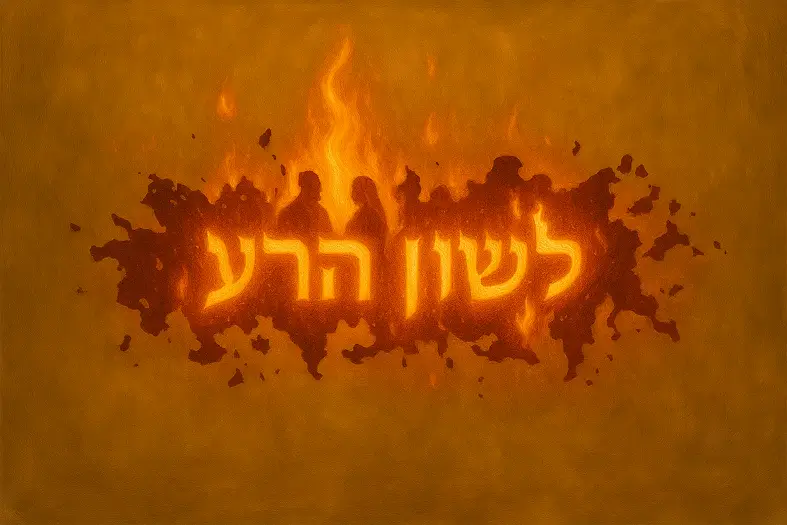


It is forbidden to gossip or spread slander about others, whether true or false, in a harmful way.
This mitzvah prohibits lashon hara (evil speech) and rechilut (gossip). Rambam (Hilchot De’ot 7:2–3) distinguishes between spreading rumors and speaking truth with harmful intent — both are forbidden. Sefer HaChinuch (Mitzvah 236) teaches that gossip destroys trust, causes strife, and undermines community.
The Talmud (Arachin 15b) considers lashon hara one of the gravest sins, likening it to idolatry, murder, and adultery combined. Rashi (Lev. 19:16) explains that gossip “goes about” like a peddler, spreading words from house to house. Ramban notes that gossip is insidious because it is often subtle, cloaked in casual conversation. Midrash Rabbah (Lev. 26:2) emphasizes that speech is a Divine gift; misusing it for harm profanes holiness.
Commentary & Classical Explanation:
Contrast with Rebuke (Mitzvah 16):
Parallel to Not Embarrassing Others (Mitzvah 17):
Guarding Speech in Daily Life
Digital Responsibility
Dignity as Divine Image
Preventing Communal Division
Curbing Curiosity and Entertainment
Holiness in Communication


Pertains to the power of speech—both positive and negative—including lashon hara, vows, and blessings.
Mitzvot that strengthen communal life — showing up, participating, supporting, and belonging. Community is where holiness is shared, prayers are multiplied, and responsibility becomes collective.
Empathy in motion — responding to another’s pain with sensitivity, patience, and understanding. Whereas chesed gives broadly, rachamim responds gently, tailoring care to a person’s emotional or spiritual needs.
Mitzvot that uphold fairness, honesty, and moral responsibility. Justice is kindness structured — ensuring that society reflects G-d’s order through truth, equity, and accountability.
Represents Emunah—the deep, inner trust in Hashem’s presence, oneness, and constant involvement in our lives. This badge symbolizes a heartfelt connection to G-d, rooted in belief even when we cannot see. It is the emotional and spiritual core of many mitzvot.
Mitzvot that govern ethical behavior, kindness, justice, and responsibility in human relationships. These actions build trust, dignity, and peace between people.
Mitzvot that define and deepen the relationship between a person and their Creator. These include commandments involving belief, prayer, Shabbat, festivals, sacrifices, and personal holiness — expressions of devotion rooted in divine connection.

Dive into mitzvos, prayer, and Torah study—each section curated to help you learn, reflect, and live with intention. New insights are added regularly, creating an evolving space for spiritual growth.

Explore the 613 mitzvos and uncover the meaning behind each one. Discover practical ways to integrate them into your daily life with insights, sources, and guided reflection.

Learn the structure, depth, and spiritual intent behind Jewish prayer. Dive into morning blessings, Shema, Amidah, and more—with tools to enrich your daily connection.

Each week’s parsha offers timeless wisdom and modern relevance. Explore summaries, key themes, and mitzvah connections to deepen your understanding of the Torah cycle.